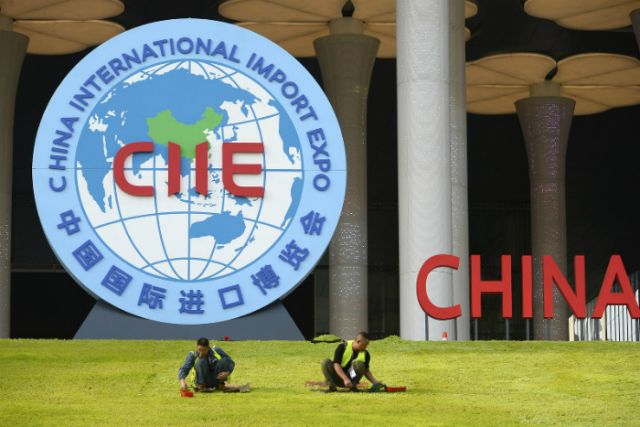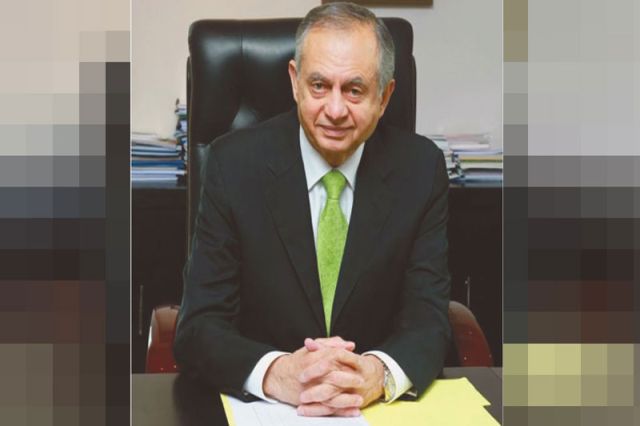
China promises to open up further in the face of protectionist trends
Shanghai : The first China International Import Expo (CIIE) that concluded here on Saturday can be called a success if only for its signal to the world that the second-largest economy will open up further in the face of protectionist, anti-globalising trends ruling in the developed world.
The material indicators of CIIE’s success also abounded, where over 400,000 local buyers had the opportunity to interact with more than 3,500 businesses from 172 countries. The gigantic exhibition complex was a beehive of activity with businesses signing thousands of deals and purchase agreements.
At the same time, the declaration of China’s further opening, on the 40th anniversary of its Deng Xiaoping-led 1978 liberalisation, appeared to find an echo in the results of the Congressional elections in the US, which has launched a trade war on the Asian nation by imposing tariffs on around half the Chinese imports into America. President Donald Trump has threatened to deepen the conflict and target all imports from China.
In his opening address at the Shanghai trade expo — whether under American pressure or otherwise — Chinese President Xi Jinping promised to lower import tariffs and make it easier for foreign companies to access China’s market. This holds promise for trading partners like India and the US which have massive trade deficits with China.
Declaring that “openness had become a trademark of China”, Xi said that his country “would continue to broaden market access”.
In an indirect reference to US protectionism, he said: “In a world of deepening economic globalisation, practices of the law of the jungle and winner takes all only represent a dead end. An inclusive growth for all is surely the right way forward.”
Xi also said that China would hasten negotiation process for both a China-European Union investment agreement and a regional China-Japan-South Korea free trade deal.
He announced that China’s import of goods and services were estimated to exceed $30 trillion and $10 trillion, respectively, in the next 15 years.
The showcasing of the Chinese market through an expo organised around the theme “New Era, Shared Future”, comes at a time when the country is striving to boost consumption in an attempt to transit away from years of manufacturing-led growth.
According to an official statement, companies that signed deals at the CIIE include multinationals like Volkswagen, Westinghouse Electric, ABB, Carnival, Rolls-Royce and Standard Chartered. American majors like General Motors and Google took part in the expo.
At the expo, Chinese e-commerce giants Alibaba and JD.com announced plans to import $200 billion and $14.4 billion of merchandise, respectively.
Beyond the billions of dollars of purchase agreements signed at the week-long CIIE, foreign businesses and observers spoke of the need for clarity on concrete steps that would facilitate longer-term market access in China.
Professor at Jawaharlal Nehru University’s Centre for East Asian Studies, Srikanth Kondapalli, an invitee to the CIIE Media and Think Tank Forum, told IANS here that countries which took part in the Shanghai expo now await the concretising of promises made to open up the economy.
“The world is now looking to see how the policy measures articulated by President Xi will be implemented in the near future,” he said.
Indian companies participated in the CIIE with the country pavilion focusing on key sectors such as food, agro products, pharmaceuticals, IT and ITES, tourism and services.
China is India’s largest trading partner and bilateral trade last year touched nearly $90 billion, while the trade deficit stood at over $63 billion.
India reiterated its concerns at the CIIE over the increasing trade deficit with China and asked Beijing to give Indian products more access to the Chinese market in the areas of pharmacy, agriculture and information technology.
An Indian embassy statement said that Commerce Secretary Anup Wadhawan, who attended the CIIIE and met here with China’s Vice Commerce Minister Wang Shouwen, told the Chinese minister that “areas such as agriculture products, pharmaceuticals, information technology services and tourism, in which India has proven strengths and significant global presence but a minuscule presence in China, need to be encouraged in bilateral trade.”
The statement also said that Wadhawan acknowledged the Chinese government’s efforts in clearing some of the market access issues for products such as rice and rapeseed meal, and expressed satisfaction over progress on soybean meal and pomegranate, among other commodities.
Foreign speakers at the media and think tank forum lauded China’s initiative on opening up and globalisation at a time when the revival in world economic growth is still at its beginnings.
“The spirit of cooperation has been put at risk by a vicious cycle of protectionism and economic setbacks. Global imbalances are challenging stability and economic growth,” former French Prime Minister Dominique Villepin said in his address.
Noting that the economic momentum had shifted away from the Western economies towards more “multi-polar growth”, Villepin called for urgent reform of multilateral institutions like the IMF and the WTO by granting more voting rights to countries like India and Russia.
Poland’s former Finance Minister Grzegorz Kolodko said the world is now witnessing the “crisis of neo-liberal capitalism…a crisis of the system, of views and policies. The contribution to new thinking is now coming from countries like China and others,” he said.
“Globalisation has not been inclusive in recent times but has been going towards neo-liberalsm, enriching the few, including the middle class. So what has emerged, in reaction, is neo-nationalism,” he added.
With the success of the first edition of CIIE, China is already planning a second edtion of the Shanghai expo to be held next year.
(Biswajit Choudhury visited the CIIE at the invitation of China’s State Council Information Office. He can be reached at biswajit.c@ians.in )
—IANS


